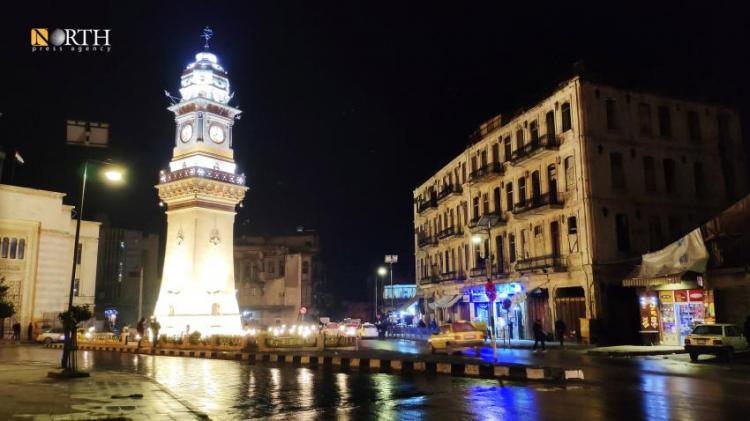Aleppo – North-Press Agency
Ali al-Agha
The Misaharati (a person who wanders the streets hitting drums to wake people up during Ramadan to have the Suhoor meal before sunrise) has never been absent from Aleppo city, even when clashes were the most intense in its neighborhoods during the Syrian crisis and the city was divided between areas controlled by the armed opposition and those of the Syrian government.
But the man who undertakes the task of waking people from their sleep and alerting them to the time of Suhoor with his little drum, as one of Ramadan's rituals in Syria, was absent from Aleppo’s streets and neighborhoods during Ramadan this year after the imposition of a curfew as one of preventative measures taken in the Syrian government-controlled areas against the spread of coronavirus.
56 – year – old Saleh Abaji, who has been working as a Misaharati in Aleppo's neighborhoods for 32 years, told North-Press that he inherited the work from his father. He was accompanying his father in the streets of the city of Aleppo and never stopped despite the war in the city.
He indicates that the month of Ramadan this year is different from years prior, as prayer has stopped in the mosques as a precautionary measure against the spread of coronavirus, and the Misaharati stopped working due to the curfew. The police command in Aleppo city also did not approve his work this year, even though he would have been alone in the street and following all precautions to avoid contact with the residents.
45 – year – old Fadi Badawi, who also works as a Misaharati, told North-Press that the work of the Masarati has gradually decreased since 2011 due to the internet and the multiplicity of ways to entertain and spend time until the Suhoor meal.
"Years ago we were waking people up, but during Ramadan last year we found that many were not sleeping until Suhoor, which made the career of the Misaharati decline to turn over time into a tradition.”
Adnan al-Omeiri, a 42-year-old from the Saif al-Dawla neighborhood, believes that the Misaharati's work has greatly declined after many people spend a long time on smartphones, and they no longer need him.
The deputy head of the Aleppo city council Ahmad Ali Rahmouni told North-Press that this year they did not approve any of the requests of those who were working as Misaharati during Ramadan, because roaming the street is not allowed during the ban period to avoid chaos and not to be detained by the members of the Internal Security Forces who are deployed in the neighborhoods at night.
The repercussions of the spread of coronavirus have affected the social rituals and customs in many Syrian regions, while many avoided holding banquets or inviting each other to break fast.

